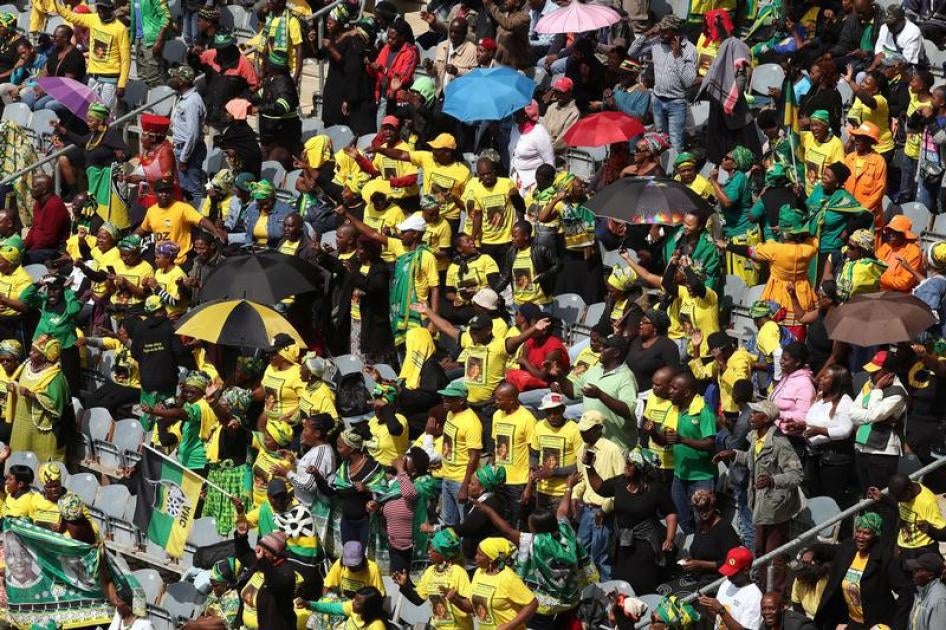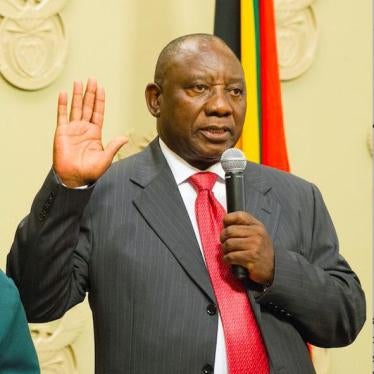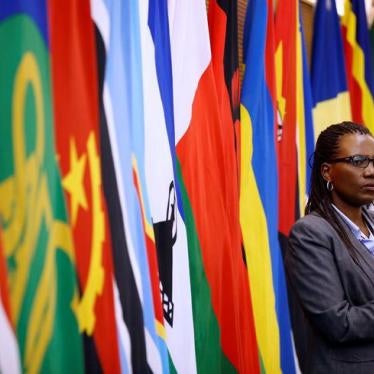South Africans will gather tomorrow for the burial of Winnie Nomzamo Madikizela-Mandela, an icon of the anti-apartheid struggle known by millions as the “Mother of the Nation.”
Winnie Mandela, who died on April 2 aged 81, will be given a national funeral.
South Africans, and people around the world, remember Winnie Mandela for her immense contribution to the struggle against apartheid and her campaign for the release of her former husband, Nelson Mandela. More than almost any other anti-apartheid activist, Winnie Mandela angered the apartheid regime and they victimized her in unimaginable ways: torture, solitary confinement, banishment, and separation her from her young children whose father had already been torn from them. President Cyril Ramaphosa said Winnie Mandela “bore the brunt of the senseless brutality of the apartheid state with stoicism and fortitude.”
While many will remember Winnie as a fearless and powerful Black woman, a champion of women’s rights and one of the most potent symbols of resistance to the apartheid state, her legacy is more complicated and marred by allegations of her involvement in human rights abuses. In the 1980s, she was in charge of the Mandela United Football Club in Soweto whose members were accused of committing a number of serious abuses, including the abduction, torture, and killing of teenager Stompie Seipei for allegedly being a police spy. In February 1989, the African National Congress (ANC) tried to have the Mandela Football Club disbanded over its “unbecoming activities.” She was also implicated in the disappearance of two Soweto youths, Lolo Sono and Siboniso Shabalala. In February 1989, the United Democratic Front, a coalition of 400 organizations fighting apartheid, publicly distanced itself from Winnie Mandela and her actions.
After the end of apartheid, she continued to be a voice for the country’s poorest and most marginalized people. She continued to challenge South Africa’s government over the persistence of racialized inequality, and the conditions which see many unable to access adequate healthcare, education, water, and electricity more than 20 years after the end of apartheid. The African Diaspora for Development, representing African foreign nationals in South Africa, said they will remember Winnie Madikizela-Mandela for the assistance she provided to displaced foreign nationals during the xenophobic attacks in 2008.
Over the last week I spoke to scores of distraught South Africans in Soweto township, where Winnie Mandela lived before South Africa attained majority rule, and in Tembisa township. Women, men, and young people expressed their love and admiration for her, saying she was “a fearless fighter, and leader in her own right, not just Mandela’s former wife.”
The acclaimed “Mother of the Nation” is no more, may her soul rest in peace.









